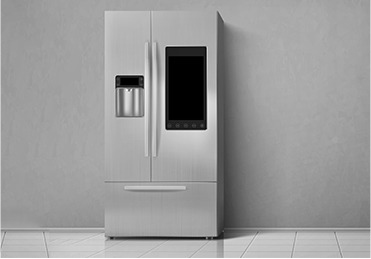The Essential Guide to Refrigerators: Understanding Their Use and Repair
Refrigerators are the unsung heroes of our kitchens, quietly working around the clock to preserve our perishable foods and keep them fresh. From keeping our drinks cold on a hot summer day to storing leftovers for future meals, refrigerators play a vital role in our daily lives. But what happens when our trusty fridge starts acting up? In this guide, we’ll explore everything you need to know about refrigerators, from their basic functions to common repair issues and how to address them.
Understanding Refrigerators: How Do They Work?
Refrigerators operate on a simple yet ingenious principle: they remove heat from the interior compartment to lower the temperature, thereby preserving food and drinks. This process is made possible by a combination of components, including a compressor, condenser, evaporator, and refrigerant.
- Compressor: The compressor is the heart of the refrigerator, responsible for compressing the refrigerant gas and increasing its pressure.
- Condenser: The condenser dissipates heat from the compressed refrigerant gas, causing it to condense into a liquid.
- Evaporator: The evaporator absorbs heat from the interior compartment of the refrigerator, causing the liquid refrigerant to evaporate back into a gas.
- Refrigerant: The refrigerant is the medium that carries heat away from the interior compartment, cycling through the compressor, condenser, and evaporator in a continuous loop.
Common Refrigerator Issues and Repairs
While refrigerators are designed to be durable and reliable, they can still encounter issues from time to time. Here are some common refrigerator problems and how to address them:
- Warm Interior: If your refrigerator is not cooling properly, it could be due to a faulty compressor, condenser fan, or evaporator fan. Check to see if the fans are running and clean any debris blocking the condenser coils. If the issue persists, you may need to call a professional technician to diagnose and repair the problem.
- Excessive Frost Build-Up: Frost build-up inside the refrigerator or freezer compartment can indicate a problem with the defrost system. Check the defrost heater, defrost thermostat, and defrost timer for any malfunctions and replace them if necessary.
- Leaking Water: A leaking refrigerator can be caused by a clogged or frozen defrost drain, a faulty water inlet valve, or a damaged water line. Clear any obstructions from the defrost drain and inspect the water inlet valve and water line for leaks or damage.
- Unusual Noises: Strange noises coming from your refrigerator, such as humming, rattling, or clicking sounds, could indicate a problem with the compressor, condenser fan, or evaporator fan. Inspect these components for any signs of wear or damage and replace them if necessary.
Tips for Maintaining Your Refrigerator
Preventive maintenance is key to prolonging the life of your refrigerator and avoiding costly repairs. Here are some tips to keep your fridge running smoothly:
- Clean the condenser coils regularly to remove dust and debris.
- Check the door seals for any signs of wear or damage and replace them if necessary.
- Keep the refrigerator interior clean and organized to allow for proper airflow.
- Avoid overloading the refrigerator or blocking the air vents with food items.
- Monitor the temperature settings and adjust them as needed to ensure optimal cooling performance.
Conclusion
Refrigerators are indispensable appliances that play a crucial role in our daily lives. By understanding how they work and knowing how to address common repair issues, you can ensure that your refrigerator remains in top condition for years to come. If you encounter any problems that you’re unable to resolve on your own, don’t hesitate to contact a professional appliance repair technician for assistance. With proper care and maintenance, your refrigerator will continue to keep your food fresh and your drinks cold for years to come.








